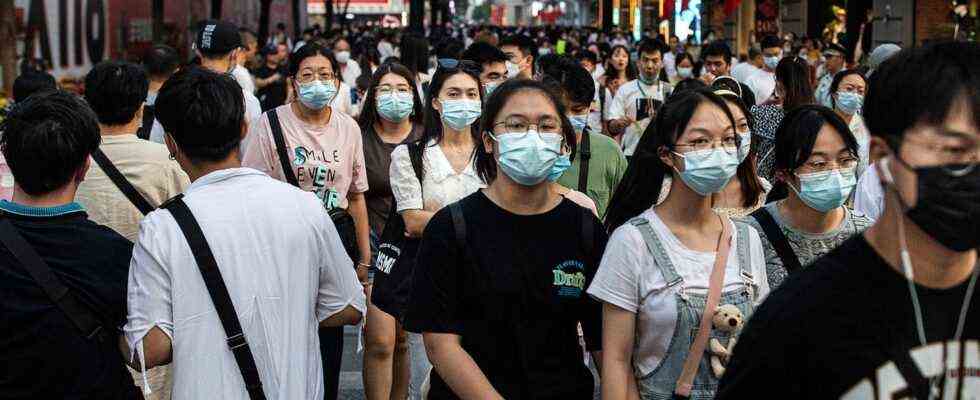CNN report
China wants to examine thousands of blood samples to clarify coronavirus origin
Passers-by in the Chinese city of Wuhan in Hubei Province wear mouth and nose protection
© Getty Images
Experts assume “absolutely important clues”: According to a media report, China wants to examine thousands of blood bank samples in order to get to the bottom of the origin of the coronavirus.
Where and when did the coronavirus originate – and lead to a global pandemic? There are many theories on this, but no reliable answers. One catchphrase comes up again and again when searching for clues: Wuhan. The virus was officially detected for the first time in the Chinese city in Hubei province. Now a large-scale investigation is to begin there, like that US broadcaster CNN with reference to unspecified Chinese officials.
Accordingly, preparations are being made to subject tens of thousands of blood bank samples to analysis. Specifically, it should be up to 200,000 samples that are stored in Wuhan. The inventory also includes samples from the last months of 2019, when there may have been the first infections with the virus.
Earlier this year, a World Health Organization (WHO) investigative panel identified the samples as a possible source of important information. They could help figure out when and where the virus first passed onto humans, according to CNN. Under what circumstances the examination should take place – for example who analyzes the blood bank samples – is still unclear.
Samples could contain “absolutely important notes”
The epidemiologist Mauren Miller called on China to include experts from abroad in the analysis. The blood bank samples could contain “absolutely important clues” that allow detailed conclusions to be drawn about the spread of the virus. “Nobody will trust the results China reports until there are qualified observers,” she quoted CNN as saying. According to the US broadcaster, Yanzhong Huang, a health expert at a US think tank, also believes that the “real-time samples” could help “understand the timing of the outbreak event.”
US scientist Miller’s demand for transparency is not unfounded. It was only in January of this year that a team of international experts on behalf of the World Health Organization (WHO) was able to visit Wuhan – more than a year after the virus was discovered. Their report was published in late March but did not provide any clear results.
Doubts quickly arose about the investigation and the report. Many countries expressed concern that international experts had been denied access to critical data during their investigation in China. The Chinese government vehemently rejected further investigations, as requested by WHO chief Tedros Adhanom Ghebreyesus.
The investigation that is now planned is apparently also due to the expiry of a deadline, as CNN reports. According to Chinese officials, the blood samples were kept for two years in order to be able to use them as evidence in court proceedings. This deadline would now expire for the samples from the presumed key months at the end of 2019.
An official from the National Health Commission of China had confirmed to CNN that preparations for the examinations were underway and would take place once the two-year period expired.



